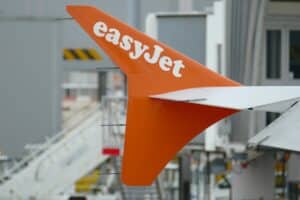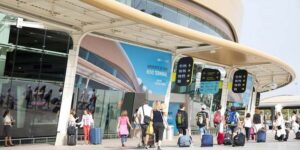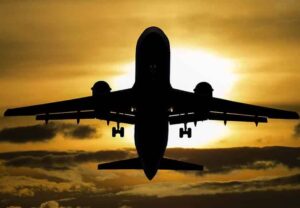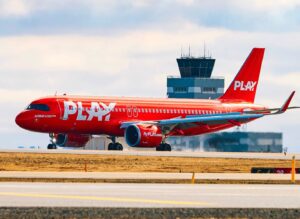Faro Airport boss Alberto Mota Borges has downplayed reports that the airport is struggling with long queues of people (click here), saying any problems were “temporary” and that everything is functioning according to plan.
“Since May 18, there haven’t been any problems at the airport’s border control, both at the departure and arrivals area,” he said.
In a recent interview, he said there may have been some temporary issues, caused by “flight delays” and “air traffic control strikes in France and Spain” as well as a large number of holidaymakers from outside of the Schengen area, which means longer queues at border control.
“This all may cause some issues, but nothing out of the ordinary,” the airport boss guaranteed.
Going into numbers, Mota Borges said that passengers only wait, on average, one minute and 54 seconds in queue to depart from the airport.
“And 90% of passengers spend less than three minutes and 41 seconds in line,” he added.
In terms of arrivals, he said people wait on average three minutes and 48 seconds. And once again, over 90% of them wait less than seven minutes and 49 seconds to enter Portuguese territory.
“The numbers are quite good, compared to other national and international airports,” the airport boss said.
He said that SEF, Portugal’s border authority, is more committed to Faro Airport than it has been in recent years and that SEF staff at the airport was reinforced in May.
“What everyone tells me is that SEF has never worked as efficiently as it has this year,” the airport manager said.
Mota Borges says, however, that things will only get better once the airport’s renovations are completed as there will be 50% more space in the arrivals terminal.
Plus, there will be different queues for passengers travelling from within or outside the Schengen area.
“We will able to make the flux of passengers work more efficiently. The airport will be more modern, functional and fitted to the profile of our guests,” he said.
The airport boss hopes the renovation at the arrivals terminal will be completed by March 2017.
He is also confident that the number of passengers will increase this winter.
“Last winter, the number grew 20%. So far, data shows that between the last weekend of October and the last weekend of March, the number of passengers will grow 10%,” he said.
Photo: BRUNO FILIPE PIRES/OPEN MEDIA GROUP
























